April 9, 2014 •
Minnesota Campaign Finance Law Challenged in Wake of McCutcheon
A lawsuit has been filed by the Institute for Justice, joined by several donors and candidates, challenging a Minnesota campaign finance law. Under section 10A.27(11) of the Minnesota Statutes, the “special sources limit” prohibits a campaign from raising more than […]

A lawsuit has been filed by the Institute for Justice, joined by several donors and candidates, challenging a Minnesota campaign finance law. Under section 10A.27(11) of the Minnesota Statutes, the “special sources limit” prohibits a campaign from raising more than 20 percent of its total contributions from lobbyists, political action committees, and large donors.
The Institute for Justice is arguing this law is unconstitutional under the First Amendment, stating “The first people to speak have full rights, but subsequent speakers have half rights.”
The case, Seaton v. Weiner, was filed in federal court on April 8.
April 9, 2014 •
We are in California for the SGAC Annual Meeting 2014!
Elizabeth Bartz, president and CEO of State and Federal Communications, and Senior Compliance Associate Jim Warner are attending the State Government Affairs Council’s 2014 Annual Meeting in San Francisco, California. This year’s conference promises a great combination of expert […]
Elizabeth Bartz, president and CEO of State and Federal Communications, and Senior Compliance Associate Jim Warner are attending the State Government Affairs Council’s 2014 Annual Meeting in San Francisco, California. This year’s conference promises a great combination of expert sessions and networking. It runs from April 9-11.
Take a look at SGAC’s terrific agenda for the conference here. You can also follow the Twitter conversations from the conference at #SGACAnnualMtg14.
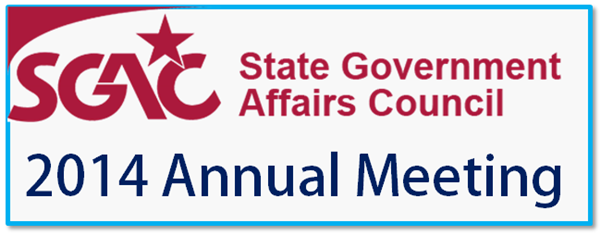
April 8, 2014 •
Liberals Win Majority in Quebec Election
A special election was held in Quebec on April 7, resulting in a new majority government. Premier Pauline Marois, leader of the Parti Quebecois, called the election hoping her party would garner a majority of seats within the National Assembly. […]

A special election was held in Quebec on April 7, resulting in a new majority government.
Premier Pauline Marois, leader of the Parti Quebecois, called the election hoping her party would garner a majority of seats within the National Assembly. However, the Liberals took 70 of the 125 seats, giving them a majority of seats in the legislature.
Marois lost her own seat in the Charlevoix-Cote-de-Beaupre riding, causing her to step down as the leader of the Parti Quebecois. Liberal Leader Phillipe Couillard will become the new Premier of Quebec.
Virginia Gov. Terry McAuliffe has submitted technical changes to the General Assembly on the major ethics legislation passed this session, including a change to the effective date of the legislation. The legislation enacts a limit on gifts from lobbyists and […]

Virginia Gov. Terry McAuliffe has submitted technical changes to the General Assembly on the major ethics legislation passed this session, including a change to the effective date of the legislation.
The legislation enacts a limit on gifts from lobbyists and principals and increases the frequency for lobbyist filings.
The changes must be approved by the House and Senate before the legislation takes effect.
Photo of Gov. Terry McAuliffe courtesy of Kate Wellington in Wikimedia Commons.
April 8, 2014 •
Maryland General Assembly Adjourns
The General Assembly adjourned late Monday, April 7, 2014, after approving bills to decriminalize marijuana and raise the state minimum wage. Legislators also approved two lobbying bills addressing ethics training requirements and lobbyist certifications of authorization to lobby. The new […]

The General Assembly adjourned late Monday, April 7, 2014, after approving bills to decriminalize marijuana and raise the state minimum wage.
Legislators also approved two lobbying bills addressing ethics training requirements and lobbyist certifications of authorization to lobby.
The new lobbying requirements in Senate Bill 92 and Senate Bill 90 will be effective October 1, 2014, unless Gov. Martin O’Malley vetoes the measures by May 27, 2014.
April 7, 2014 •
Iowa Corporate Contribution Ban Upheld
Corporations in Iowa are still prohibited from making campaign contributions, despite an attempt by non-profit corporation Iowa Right to Life Committee, Inc. to remove the ban. The Supreme Court of the United States denied review of the Eighth Circuit Court […]
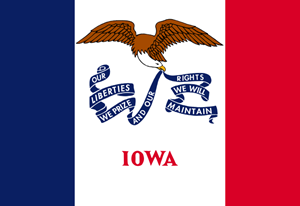
Corporations in Iowa are still prohibited from making campaign contributions, despite an attempt by non-profit corporation Iowa Right to Life Committee, Inc. to remove the ban. The Supreme Court of the United States denied review of the Eighth Circuit Court of Appeals case with no comment.
In Iowa Right to Life v. Tooker, plaintiff Iowa Right to Life alleged the ban on corporate contributions is an unconstitutional bar to free speech and equal protection. The Eighth Circuit did not agree, thus upholding the ban.
April 4, 2014 •
Georgia Jury Awards Former Ethics Commission Director $700,000
A jury verdict has ordered the state to pay Stacey Kalberman $700,000 for unfairly forcing her from office. The jury found the former director of the ethics commission was unfairly forced from office as retribution for investigating Gov. Nathan Deal’s […]

A jury verdict has ordered the state to pay Stacey Kalberman $700,000 for unfairly forcing her from office. The jury found the former director of the ethics commission was unfairly forced from office as retribution for investigating Gov. Nathan Deal’s 2010 campaign.
Kalberman sued her former employer, claiming the commission’s decisions to cut her salary by $35,000 and eliminate her top deputy’s position were in response to her desire to issue subpoenas for records in the investigation.
Attorneys for the commission argued the motivation for the cuts was concern for a budget crisis. Holly Laberge, who replaced Kalberman, testified she did not find a budget crisis when she took office.
Elizabeth Bartz, president and CEO of State and Federal Communications, is appearing as a panelist at the Broadcast Education Association (BEA) 2014 Conference in Las Vegas on Sunday, April 6. Bartz, who is a graduate of Kent State University’s School […]
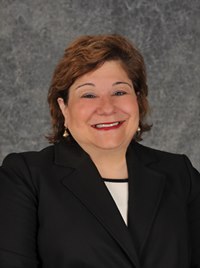
Elizabeth Bartz, president and CEO of State and Federal Communications, is appearing as a panelist at the Broadcast Education Association (BEA) 2014 Conference in Las Vegas on Sunday, April 6.
Bartz, who is a graduate of Kent State University’s School of Journalism and Mass Communication, is joining the panel “How Broadcast Media Stays Relevant in a Changing Global Environment” with Evan Rosenblum of TMZ & TMZ Sports and Heather Zimmer of Parchment, Inc.
Here is a description of the session from the BEA website:
“Academic media professionals must stay relevant in our ever-changing broadcast environment. We must ensure we not so enamored with today’s technology that we diminish the foundational skills and professional values that prepare students for the world beyond traditional and “new” media. What we teach lays a foundation for making students relevant across all disciplines whether or not they hold a camera, microphone, punch a switcher or write a web story.”
Congratulations, Elizabeth!
April 4, 2014 •
Utah: Lobbyist Name Tags Required Starting in August
Beginning August 1, 2014, a lobbyist may not lobby a public official while at the Utah Capitol Hill complex unless the lobbyist is wearing a newly required name tag in plain view. House Bill 246, which Governor Gary Herbert signed […]
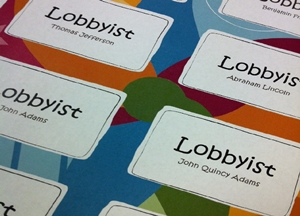
Beginning August 1, 2014, a lobbyist may not lobby a public official while at the Utah Capitol Hill complex unless the lobbyist is wearing a newly required name tag in plain view.
House Bill 246, which Governor Gary Herbert signed this week, will require all lobbyists be issued name tags bearing the word lobbyist and the lobbyist’s full name in at least 18-point type. The procedure to apply for name tags is being developed by the Lieutenant Governor’s Office and will be available before August 1, 2014. The Capitol Hill complex includes the grounds, monuments, parking areas, buildings, and other man-made and natural objects within the area bounded by 300 North Street, Columbus Street, 500 North Street, and East Capitol Boulevard, in Salt Lake City.
Additionally, the new law has raised the lobbyist registration fee from $100 to $110 and now requires lobbyists to inform public officials of the identity of whom the lobbyist is representing at the beginning of a lobbying communication.
April 4, 2014 •
Alabama Legislature Adjourns Early in Attempt to Avoid Veto
The Alabama State Legislature adjourned sine die on Thursday, April 3, 2014. The legislature adjourned early in an attempt to avoid a threatened veto of an educational budget bill. Gov. Robert Bentley has not decided whether he will sign the […]
The Alabama State Legislature adjourned sine die on Thursday, April 3, 2014. The legislature adjourned early in an attempt to avoid a threatened veto of an educational budget bill.
Gov. Robert Bentley has not decided whether he will sign the bill or call a special session to push through the raise for K-12 employees he was seeking.
April 4, 2014 •
California Governor Signs Bill to Increase Authority of FPPC
Gov. Jerry Brown has signed a bill designed to strengthen campaign finance laws and bolster enforcement. Assembly Bill 800 gives the Fair Political Practices Commission (FPPC) the authority to audit campaign funds and seek court injunctions to force compliance before […]
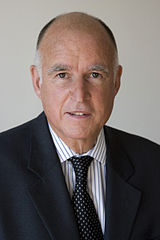
Gov. Jerry Brown has signed a bill designed to strengthen campaign finance laws and bolster enforcement. Assembly Bill 800 gives the Fair Political Practices Commission (FPPC) the authority to audit campaign funds and seek court injunctions to force compliance before elections.
Previously, the FPPC was unable to commence audits of committees until after the conclusion of the general election. The bill also gives preference to civil actions filed by the FPPC in court to ensure disclosures happen before the election.
The bill took effect upon signature.
April 4, 2014 •
News You Can Use Digest – April 4, 2014
National: New G.O.P. Bid to Limit Voting in Swing States New York Times – Steven Yaccino and Lizette Alvarez | Published: 3/29/2014 Some swing states under Republican control are enacting new restrictions on registering and voting that go beyond recent […]

National:
New G.O.P. Bid to Limit Voting in Swing States
New York Times – Steven Yaccino and Lizette Alvarez | Published: 3/29/2014
Some swing states under Republican control are enacting new restrictions on registering and voting that go beyond recent voter identification requirements. The bills, laws, and administrative rules shake up fundamental components of state election systems, including the days and times polls are open and the locations where people vote.
Federal:
Supreme Court Strikes Down Overall Political Donation Cap
New York Times – Adam Liptak | Published: 4/2/2014
The U.S. Supreme Court freed wealthy donors to give more money directly to congressional candidates. The conservative majority struck down aggregate limits that barred political donors from giving more than $123,000 in an election cycle to candidates running for seats in the House or Senate. The court said this limit violated the free-speech rights of the donors, and it was not needed to prevent corruption of the political process. The justices noted donors must still abide by rules that prevent them from giving more than $2,600 per election per candidate.
From the States and Municipalities:
Alabama – Wren Resigns
Montgomery Advertiser – Kala Kachmar and Brian Lyman | Published: 4/1/2014
Alabama Rep. Greg Wren resigned and pleaded guilty to a misdemeanor ethics violation in a deal that will secure his cooperation with a corruption investigation at the Capitol. Court documents said Wren, an insurance agent by trade who served as chairperson of the Joint Legislative Medicaid Committee, tried to insert language in the state budget that would have given American Pharmacy Cooperative an edge in certain Medicaid contracts. At the same times, management with the cooperative helped Wren secure a contract with RxAlly for consulting worth $24,000.
California – Case against State Sen. Yee Raises Fundraising Questions
San Francisco Chronicle – Melody Gutierrez and Carla Marinucci | Published: 3/31/2014
Much of the money donated to California lawmakers comes from groups or individuals with pending business before the Legislature. The recent arrest of state Sen. Leland Yee prompted several lawmakers to suggest it is time to revisit campaign finance reform to fix inadequacies in the law or to, at the very least, stop politicians from using campaign donations to pay for their legal defense following criminal charges.
Connecticut – Co-Conspirators’ Guilty Pleas Make John Rowland a Target
Connecticut Mirror – Mark Pazniokas | Published: 4/1/2014
A former congressional candidate and her husband pleaded guilty in a scheme to set up a phony contract to hide the role played in the campaign by former Connecticut Gov. John Rowland, who resigned a decade ago in a corruption scandal. Prosecutors said Lisa Wilson-Foley, Brian Foley, and Rowland entered into an unlawful conspiracy in 2011 to make illegal contributions to Wilson-Foley. Rowland was paid about $35,000 for services to the campaign. The payments originated with Foley and constituted campaign contributions but were not reported to the FEC.
Delaware – Judge Grants Injunction Sought by Conservative Group Challenging Delaware Campaign Finance Law
Greenfield Daily Reporter – Randall Chase (Associated Press) | Published: 3/31/2014
A federal judge ruled in favor of Delaware Strong Families in its challenge to a 2012 state law requiring groups that spend $500 or more during an election period on third-party advertisements to disclose the source of donations. The judge issued a preliminary injunction that halts this reporting requirement.
District of Columbia – Councilwoman Bowser Defeats Incumbent Gray in D.C. Mayoral Primary
Washington Post – Mike DeBonis and Aaron Davis | Published: 4/1/2014
District of Columbia Councilperson Muriel Bowser won an upset victory in the Democratic primary for mayor in a race that turned on the integrity of the incumbent, Vincent Gray. Only three weeks before the election, Gray was comfortably ahead in the polls when a donor pleaded guilty to illegally pumping nearly $700,000 into Gray’s campaign four years ago. The donor said the mayor had participated in the plot. Gray denied knowledge of the under-the-table effort on his behalf, but overnight, a listless race became a referendum on the mayor’s credibility.
Georgia – Trial Begins in Lawsuit against Georgia Ethics Commission
Marietta Daily Journal – Christina Cassidy (Associated Press) | Published: 4/1/2014
A jury will decide whether they believe the claims brought by former state ethics commission Executive Secretary Stacey Kalberman in a wrongful termination lawsuit, who says she was forced out her job in an effort to stifle an investigation of Georgia Gov. Nathan Deal, or side with state attorneys who argue she left after her salary was reduced by 30 percent for budgetary reasons in 2011 and it was unrelated to the governor’s ethics probe.
Illinois – NRA Lobbyist Breaks Hunting Law, Then Lobbies to Change It
Chicago Sun-Times – Dave McKinney | Published: 4/1/2014
Todd Vandermyde, the National Rifle Association’s Illinois lobbyist, was fined $120 last December for breaking a state hunting law. A month later, he worked with House Minority Leader Jim Durkin to rewrite the law he broke. “If I … changed the law because I got a ticket, people would be screaming bloody murder; I don’t think it’s any different when someone with the level of influence and access that he has does it, too,” said Rep. Kelly Cassidy.
Kentucky – 2014 Changes Will Strengthen Kentucky Ethics Law
Russellville News-Democrat & Leader – George Troutman (Legislative Ethics Commission) | Published: 4/3/2014
Kentucky lawmakers gave final approval to House Bill 28, which makes significant changes to the lobbying statute, including a “no cup of coffee” rule, meaning lobbyists and their employers will be prohibited from buying a meal, or even a cup of coffee, for an individual legislator, candidate, or the spouse or child of a lawmaker or candidate. In this opinion piece, George Troutman of the Legislative Ethics Commission delineates the reforms, and the positive effects he believes will ensue if Gov. Steve Beshear signs the measure into law.
Missouri – Pledge Asks Missouri Lawmakers to Refuse Gifts from Lobbyists
Columbia Tribune – Rudi Keller | Published: 3/30/2014
Missouri Rep. John Wright is calling on lawmakers to sign a pledge promising not to accept gifts from lobbyists. Last year, lobbyists purchased almost $1 million worth of meals, trips, golf outings, and sports tickets for lawmakers, including tickets to the World Series and University of Missouri football and basketball games. “Most of the people here are good people, but a lot of bad habits have developed and there is a culture of lobbyist gifts and a culture of entitlement that needs to be completely reset,” said Wright.
Montana – Commissioner Says Senate Majority Leader Art Wittich Broke Campaign Laws
The Daily Journal – Matt Volz (Associated Press) | Published: 4/1/2014
Montana Commissioner of Political Practices Jonathan Motl concluded Senate Majority Leader Art Wittich violated the law by coordinating with Western Tradition Partnership and other entities to accept illegal corporate donations in his 2010 primary election campaign. Motl asked a state judge to weigh his findings and decide whether Wittich’s actions merit removal from office and from the 2014 election ballot.
New York – Capitol Corruption Panel’s Demise Angers Watchdogs
New York Times – Jesse McKinley and Thomas Kaplan | Published: 3/31/2014
Ethics provisions attached to the state budget signed into law by New York Gov. Andrew Cuomo disbands the Commission to Investigate Public Corruption, which was formed last July and given a broad mandate to restore public trust in government. Cuomo said the reforms he wanted would be accomplished by changes to campaign finance reporting requirements and bribery laws, and the public financing of elections in this year’s race for state comptroller.
Pennsylvania – Pa. House Leaders Impose Ban on Most Cash Gifts
Philadelphia Inquirer – Mark Scolforo (Associated Press) | Published: 4/2/2014
Legislative leaders adopted a new ethics rule that prohibits members of the Pennsylvania House from accepting cash gifts, although money from specified close family members and non-lobbyist friends is allowed. A spokesperson for House Speaker Sam Smith said the policy change was made in response to reports in The Philadelphia Inquirer that four House members accepted payments from a lobbyist who was part of a sting operation.
Wisconsin – Lobbyist Bill Draws Sharp Reactions
WisconsinWatch.org – Bill Leuders | Published: 4/1/2014
Senate Bill 655, which was signed into law recently by Wisconsin Gov. Scott Walker, allows lobbyists to start making personal donations the day candidates can circulate petitions for office, which is April 15. Under the previous law, they could not make any contributions until June 1. The bill has been assailed for both its process and its substance. Meanwhile, some lament that this dissent led to it being watered down.
 State and Federal Communications produces a weekly summary of national news, offering more than 80 articles per week focused on ethics, lobbying, and campaign finance.
State and Federal Communications produces a weekly summary of national news, offering more than 80 articles per week focused on ethics, lobbying, and campaign finance.
News You Can Use is a news service provided at no charge only to clients of our online Executive Source Guides, or ALERTS™ consulting clients.
April 3, 2014 •
Kentucky Passes Ethics Legislation
Nearing the end of its 2014 session, the Kentucky General Assembly passed significant ethics legislation containing recommendations the Legislative Ethics Commission has requested for years. House Bill 28 prohibits employers of legislative lobbyists and permanent committees from making campaign contributions […]
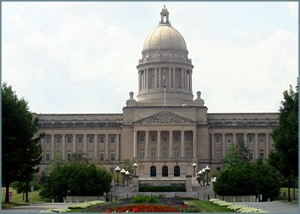
Nearing the end of its 2014 session, the Kentucky General Assembly passed significant ethics legislation containing recommendations the Legislative Ethics Commission has requested for years. House Bill 28 prohibits employers of legislative lobbyists and permanent committees from making campaign contributions to legislators and candidates for the General Assembly during a regular legislative session. Employers of legislative lobbyists must disclose on their expenditure reports the cost of advertising supporting or opposing legislation during a session of the General Assembly.
The bill also includes the “no cup of coffee rule,” eliminating the exception previously allowing legislative lobbyists to spend up to $100 on food and beverage for a legislator, extends the gift prohibition to legislative candidates, and prohibits legislative lobbyists and their employers from providing out-of-state transportation or lodging for legislators.
The bill awaits signature by Gov. Beshear.
April 3, 2014 •
Puerto Rico Maintains Aggregate Limits Despite McCutcheon
On April 3, the Puerto Rico Office of the Electoral Comptroller issued an informational newsletter in light of the U.S. Supreme Court ruling in McCutcheon v. FEC. In McCutcheon, the Court held federal aggregate campaign contribution limits unconstitutional on First […]
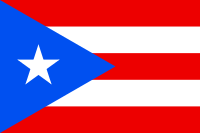
On April 3, the Puerto Rico Office of the Electoral Comptroller issued an informational newsletter in light of the U.S. Supreme Court ruling in McCutcheon v. FEC. In McCutcheon, the Court held federal aggregate campaign contribution limits unconstitutional on First Amendment grounds, as they do not further the permissible government interest in preventing corruption or the appearance of corruption.
While the Court referenced similar aggregate limits in other states and jurisdictions, it did not go so far as to declare them unconstitutional. Therefore, the office is not taking any immediate action with regard to the Puerto Rico aggregate campaign finance limits established in 2011. It will request an opinion from the Puerto Rico Secretary of Justice to determine how the Court’s decision relates to Puerto Rico law.
The office will issue new informational bulletins as further developments arise.
State and Federal Communications, Inc. provides research and consulting services for government relations professionals on lobbying laws, procurement lobbying laws, political contribution laws in the United States and Canada. Learn more by visiting stateandfed.com.


